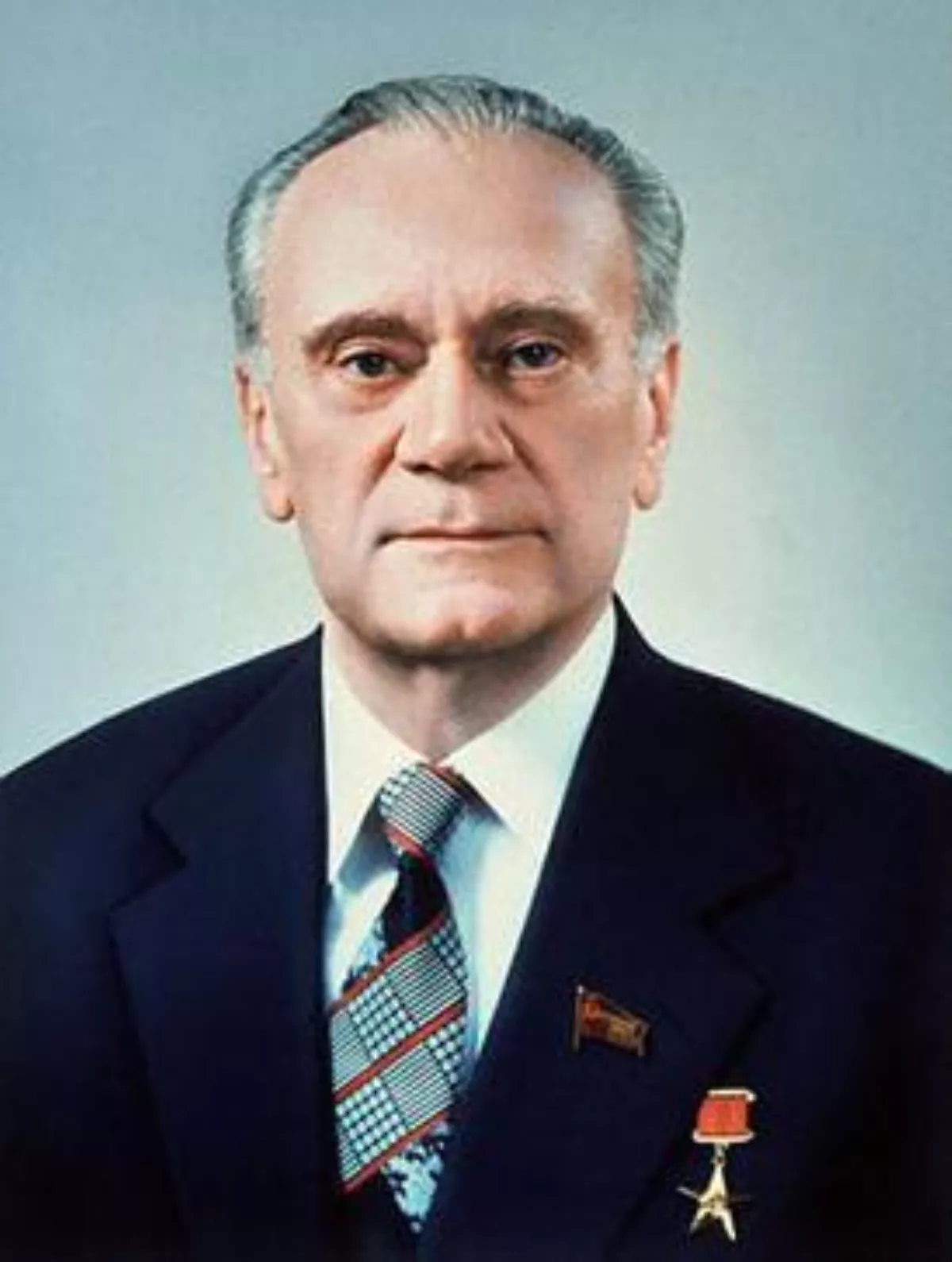 1.
1. Nikolai Tikhonov served as Chairman of the Council of Ministers from 1980 to 1985, and as a First Deputy Chairman of the Council of Ministers, literally First Vice Premier, from 1976 to 1980.

 1.
1. Nikolai Tikhonov served as Chairman of the Council of Ministers from 1980 to 1985, and as a First Deputy Chairman of the Council of Ministers, literally First Vice Premier, from 1976 to 1980.
Nikolai Tikhonov was replaced as Chairman of the Council of Ministers in 1985 by Nikolai Ryzhkov.
Nikolai Tikhonov was born in the city of Kharkiv in 1905 to a Russian-Ukrainian working-class family; he graduated in the 1920s and started working in the 1930s.
Nikolai Tikhonov was appointed deputy chairman of the Gosplan in 1963.
Nikolai Tikhonov retired from active politics in 1989 as a pensioner.
Nikolai Tikhonov worked as an assistant engineer from 1924 to 1926.
Four years later, in 1930, Nikolai Tikhonov graduated as an engineer, earning a degree from the Dnipropetrovsk Metallurgical Institute.
From 1930 to 1941, Nikolai Tikhonov worked as an engineer at the Lenin Metallurgical Plant in Dnipropetrovsk; he was appointed as the plant's Chief Engineer in January 1941.
Nikolai Tikhonov joined the All-Union Communist Party in 1940 and by the end of the decade, had secured a job as a plant director.
Nikolai Tikhonov was quickly promoted, and started working for the Ministry of Ferrous Metallurgy in the 1950s.
Between 1955 and 1960 Nikolai Tikhonov became a Deputy Minister of the Ministry of Ferrous Metallurgy, a member of the Scientific Council of the Council of Ministers, and finally, a deputy chairman of the State Planning Committee.
At the 23rd party congress in 1966, Nikolai Tikhonov was elected a member of the Central Committee.
In 1978 Nikolai Tikhonov was elected a candidate member of the Politburo and was made a voting member of the Politburo in 1979.
Early in his term, in January 1981, Nikolai Tikhonov admitted that the government's demographic policy was one of the weakest areas of his cabinet.
Some Western analysts speculated that the appointment of Andrei Gromyko to the First Deputy Premiership, again without Nikolai Tikhonov's consent, was a sign that his position within the Soviet hierarchy was weakened.
When Chernenko died in 1985, Nikolai Tikhonov tried, but failed, to find a contender to Gorbachev's candidacy to the General Secretaryship.
On 23 May 1985 Nikolai Tikhonov presented his development plan for 1985 to 1990, and up until 2000, the plan was criticised by co-workers, and Gorbachev told his colleagues that Nikolai Tikhonov was "ill-equipped" for the Premiership.
Nikolai Tikhonov's resignation was made official at a Central Committee plenum in September 1985.
Nikolai Tikhonov was active in Soviet politics, albeit in a much less prominent role, until 1989 when he lost his seat in the Central Committee.
Nikolai Tikhonov died on 1 June 1997 and was buried at the Novodevichy Cemetery.
Nikolai Tikhonov, when compared to other Soviet premiers, has made little impact on post-Soviet culture and his legacy is remembered by few today.